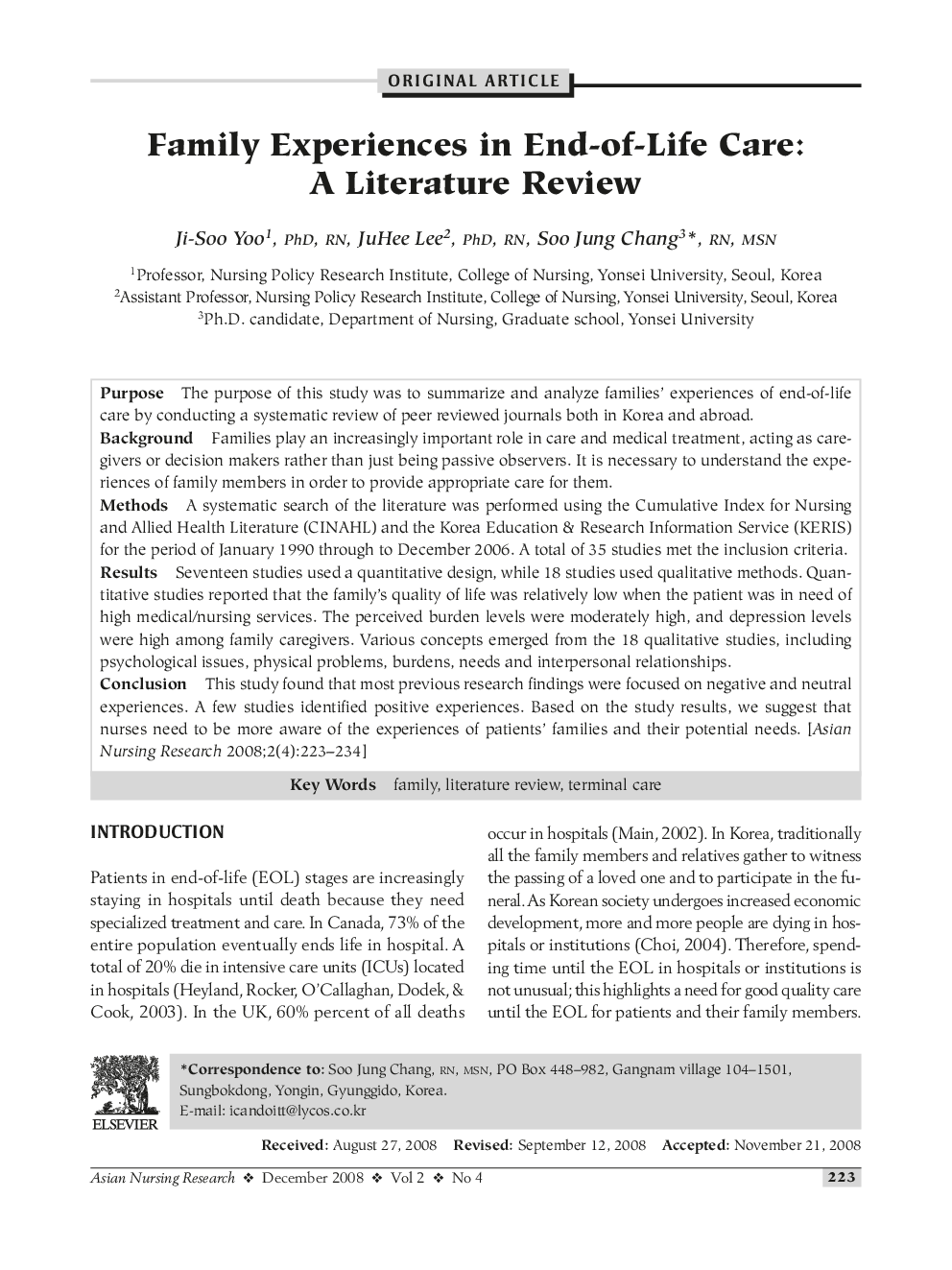| Article ID | Journal | Published Year | Pages | File Type |
|---|---|---|---|---|
| 2645501 | Asian Nursing Research | 2008 | 12 Pages |
PurposeThe purpose of this study was to summarize and analyze families' experiences of end-of-life care by conducting a systematic review of peer reviewed journals both in Korea and abroad.BackgroundFamilies play an increasingly important role in care and medical treatment, acting as caregivers or decision makers rather than just being passive observers. It is necessary to understand the experiences of family members in order to provide appropriate care for them.MethodsA systematic search of the literature was performed using the Cumulative Index for Nursing and Allied Health Literature (CINAHL) and the Korea Education & Research Information Service (KERIS) for the period of January 1990 through to December 2006. A total of 35 studies met the inclusion criteria.ResultsSeventeen studies used a quantitative design, while 18 studies used qualitative methods. Quantitative studies reported that the family's quality of life was relatively low when the patient was in need of high medical/nursing services. The perceived burden levels were moderately high, and depression levels were high among family caregivers. Various concepts emerged from the 18 qualitative studies, including psychological issues, physical problems, burdens, needs and interpersonal relationships.ConclusionThis study found that most previous research findings were focused on negative and neutral experiences. A few studies identified positive experiences. Based on the study results, we suggest that nurses need to be more aware of the experiences of patients' families and their potential needs.
